Abstract
Two candidate methods for the recovery and detection of viruses in soil were subjected to round robin comparative testing by members of the American Society for Testing and Materials D19:24:04:04 Subcommittee Task Group. Selection of the methods, designated "Berg" and "Goyal," was based on results of an initial screening which indicated that both met basic criteria considered essential by the task group. Both methods utilized beef extract solutions to achieve desorption and recovery of viruses from representative soils: a fine sand soil, an organic muck soil, a sandy loam soil, and a clay loam soil. One of the two methods, Goyal, also used a secondary concentration of resulting soil eluants via low-pH organic flocculation to achieve a smaller final assay volume. Evaluation of the two methods was simultaneously performed in replicate by nine different laboratories. Each of the produced samples was divided into portions, and these were respectively subjected to quantitative viral plaque assay by both the individual, termed independent, laboratory which had done the soil processing and a single common reference laboratory, using a single cell line and passage level. The Berg method seemed to produce slightly higher virus recovery values; however, the differences in virus assay titers for samples produced by the two methods were not statistically significant (P less than or equal to 0.05) for any one of the four soils. Despite this lack of a method effect, there was a statistically significant laboratory effect exhibited by assay titers from the independent versus reference laboratories for two of the soils, sandy loam and clay loam.
Full text
PDF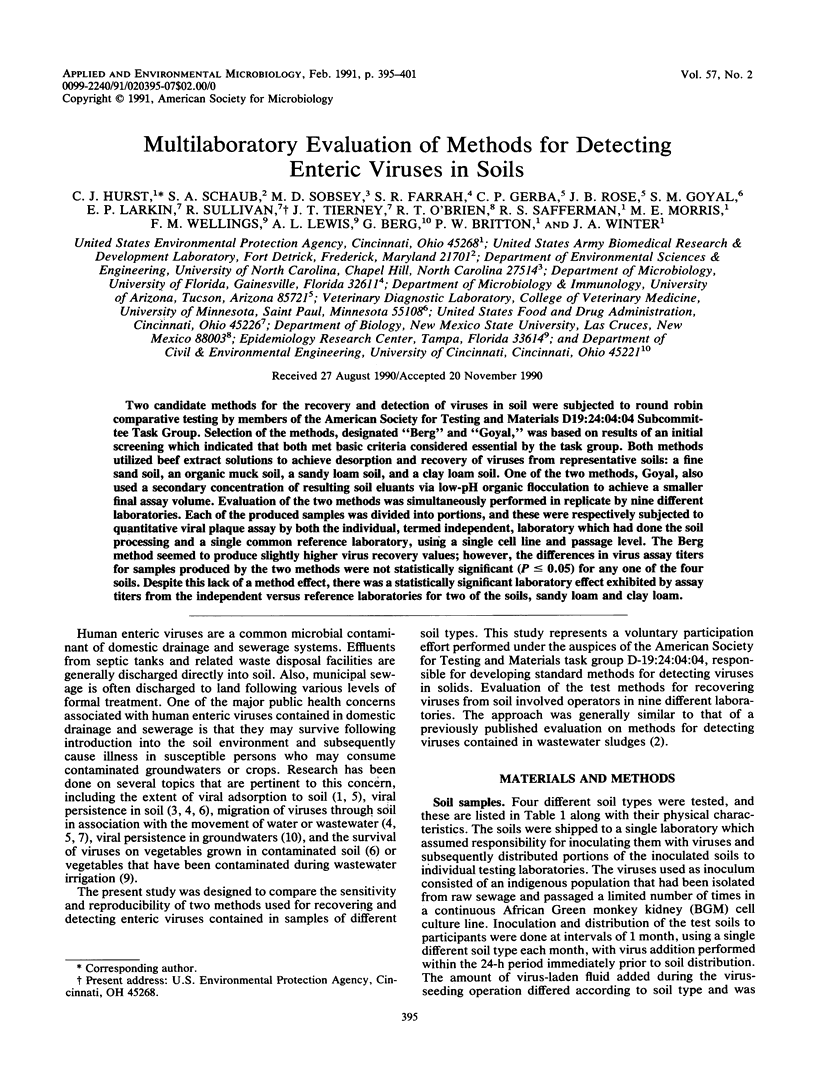
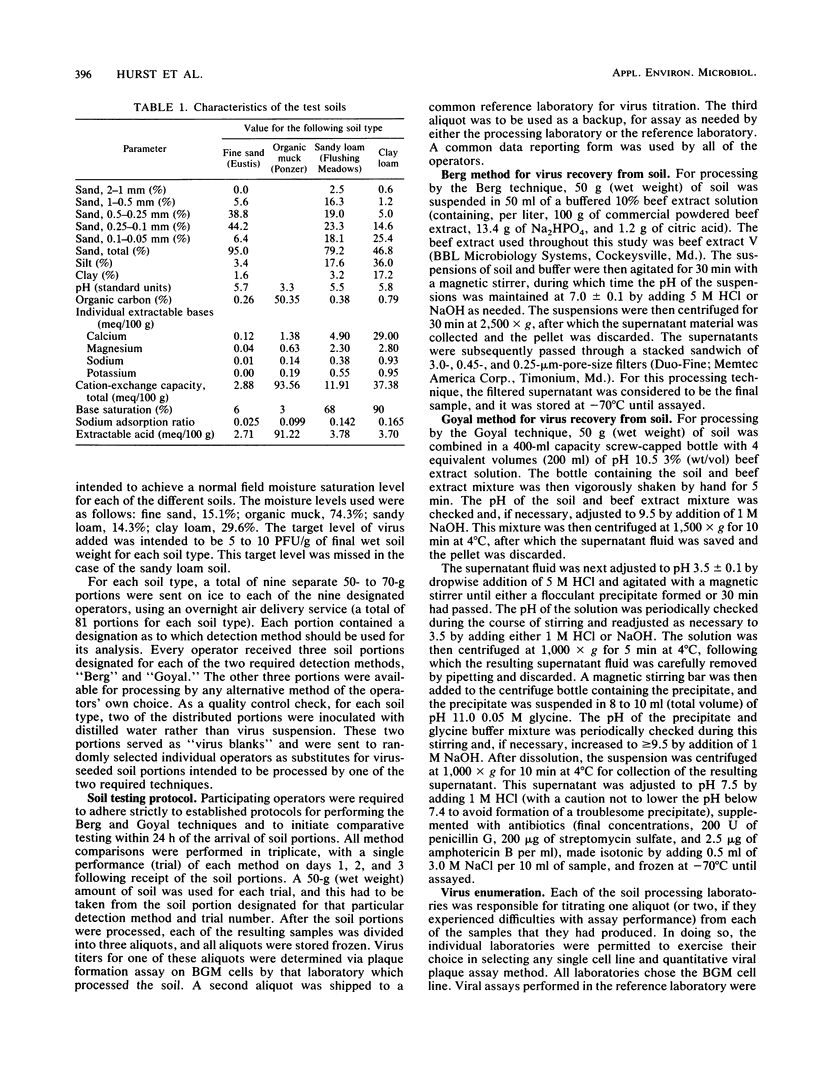
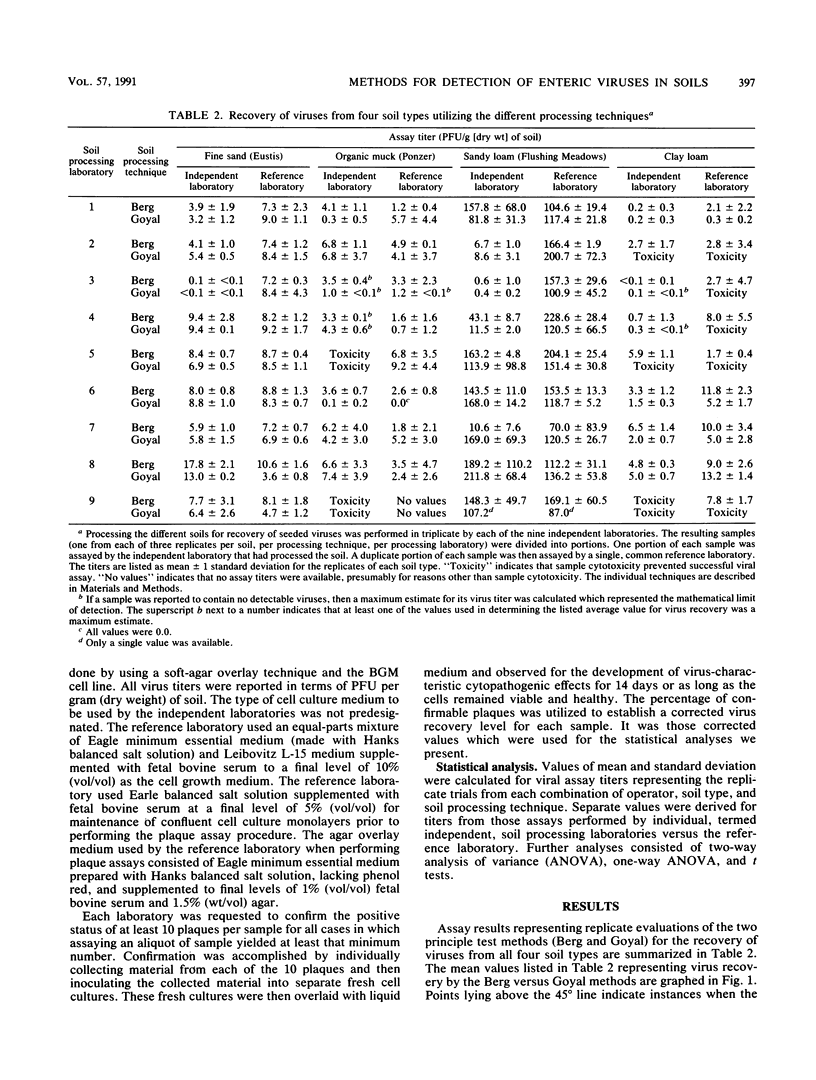
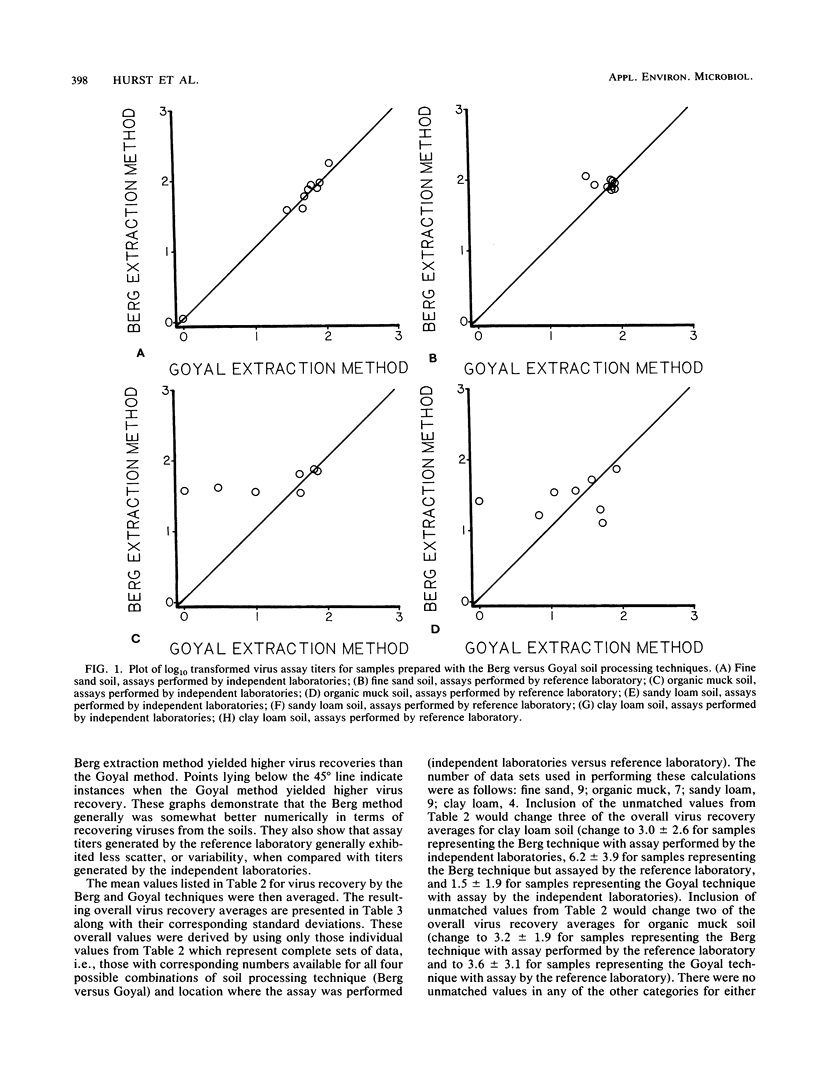
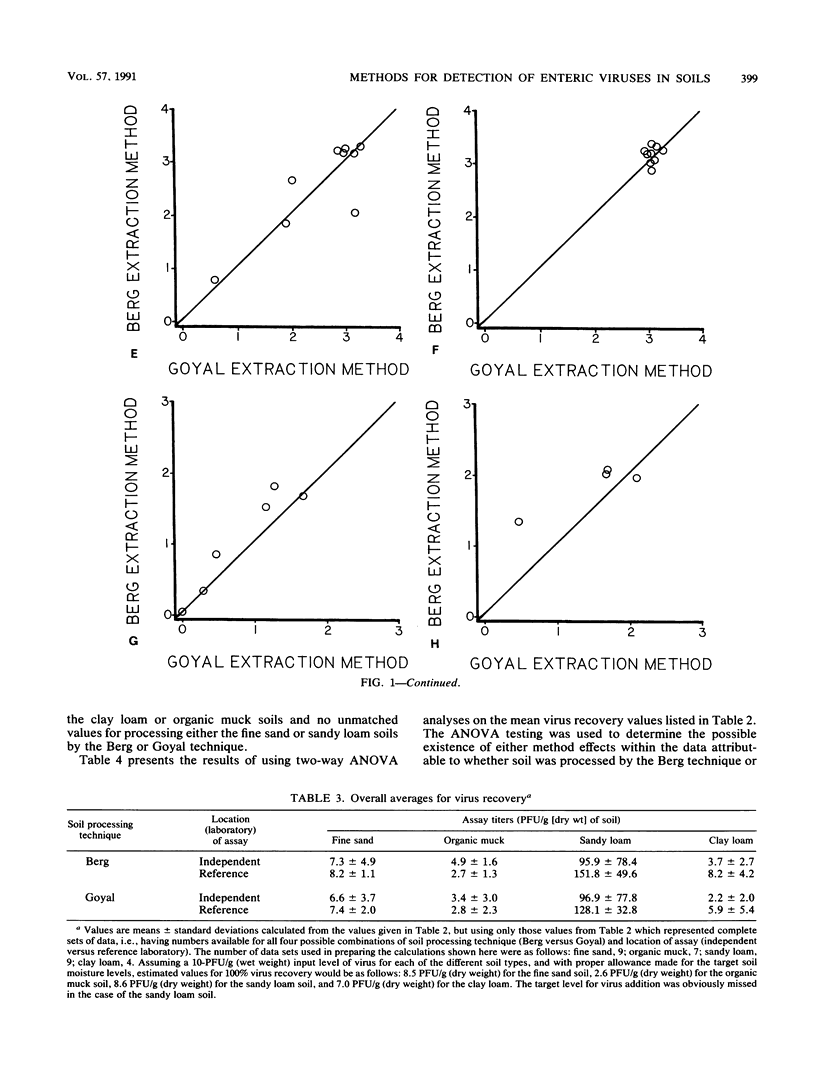
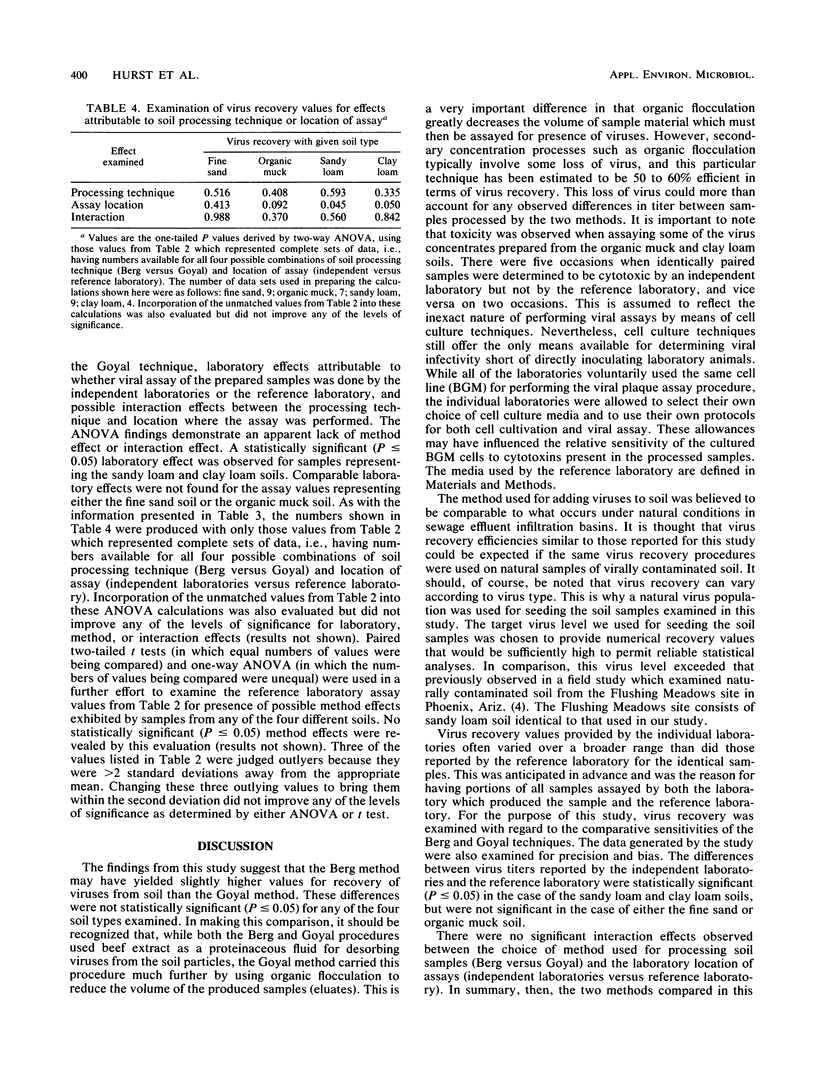
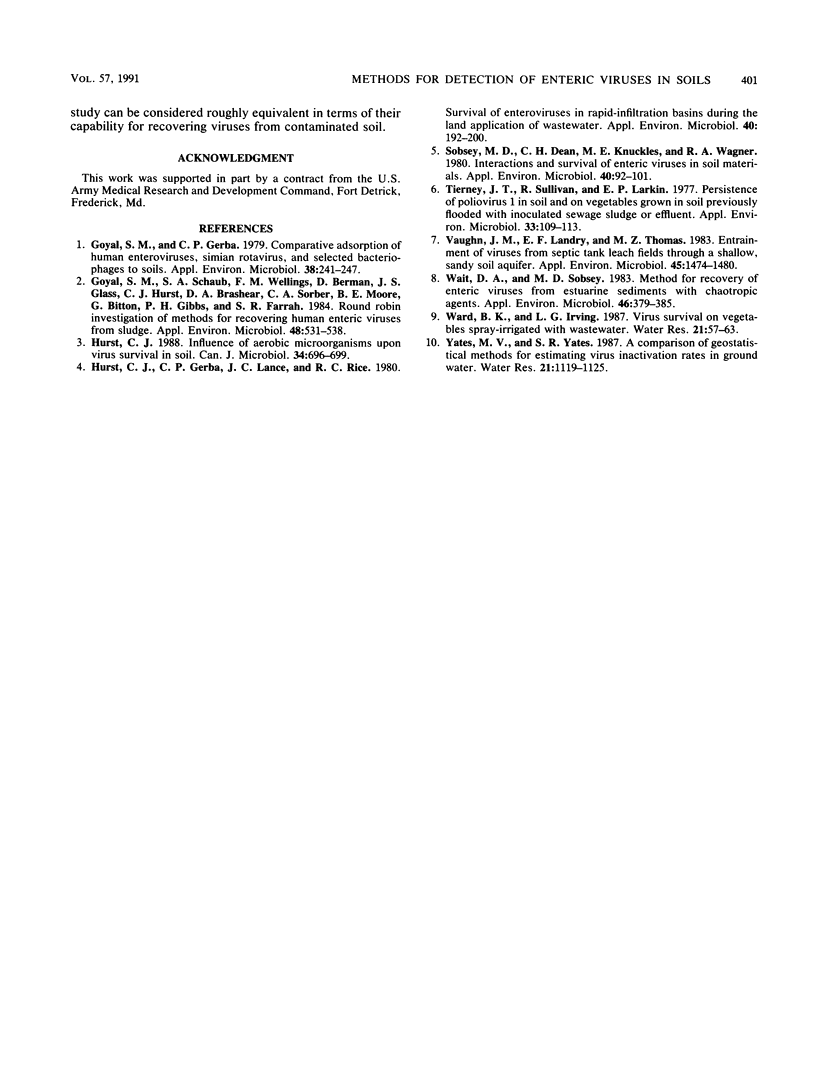
Selected References
These references are in PubMed. This may not be the complete list of references from this article.
- Goyal S. M., Gerba C. P. Comparative adsorption of human enteroviruses, simian rotavirus, and selected bacteriophages to soils. Appl Environ Microbiol. 1979 Aug;38(2):241–247. doi: 10.1128/aem.38.2.241-247.1979. [DOI] [PMC free article] [PubMed] [Google Scholar]
- Goyal S. M., Schaub S. A., Wellings F. M., Berman D., Glass J. S., Hurst C. J., Brashear D. A., Sorber C. A., Moore B. E., Bitton G. Round robin investigation of methods for recovering human enteric viruses from sludge. Appl Environ Microbiol. 1984 Sep;48(3):531–538. doi: 10.1128/aem.48.3.531-538.1984. [DOI] [PMC free article] [PubMed] [Google Scholar]
- Hurst C. J., Gerba C. P., Lance J. C., Rice R. C. Survival of enteroviruses in rapid-infiltration basins during the land application of wastewater. Appl Environ Microbiol. 1980 Aug;40(2):192–200. doi: 10.1128/aem.40.2.192-200.1980. [DOI] [PMC free article] [PubMed] [Google Scholar]
- Hurst C. J. Influence of aerobic microorganisms upon virus survival in soil. Can J Microbiol. 1988 May;34(5):696–699. doi: 10.1139/m88-117. [DOI] [PubMed] [Google Scholar]
- Sobsey M. D., Dean C. H., Knuckles M. E., Wagner R. A. Interactions and survival of enteric viruses in soil materials. Appl Environ Microbiol. 1980 Jul;40(1):92–101. doi: 10.1128/aem.40.1.92-101.1980. [DOI] [PMC free article] [PubMed] [Google Scholar]
- Tierney J. T., Sullivan R., Larkin E. P. Persistence of poliovirus 1 in soil and on vegetables grown in soil previously flooded with inoculated sewage sludge or effluent. Appl Environ Microbiol. 1977 Jan;33(1):109–113. doi: 10.1128/aem.33.1.109-113.1977. [DOI] [PMC free article] [PubMed] [Google Scholar]
- Vaughn J. M., Landry E. F., Thomas M. Z. Entrainment of viruses from septic tank leach fields through a shallow, sandy soil aquifer. Appl Environ Microbiol. 1983 May;45(5):1474–1480. doi: 10.1128/aem.45.5.1474-1480.1983. [DOI] [PMC free article] [PubMed] [Google Scholar]
- Wait D. A., Sobsey M. D. Method for recovery of enteric viruses from estuarine sediments with chaotropic agents. Appl Environ Microbiol. 1983 Aug;46(2):379–385. doi: 10.1128/aem.46.2.379-385.1983. [DOI] [PMC free article] [PubMed] [Google Scholar]


